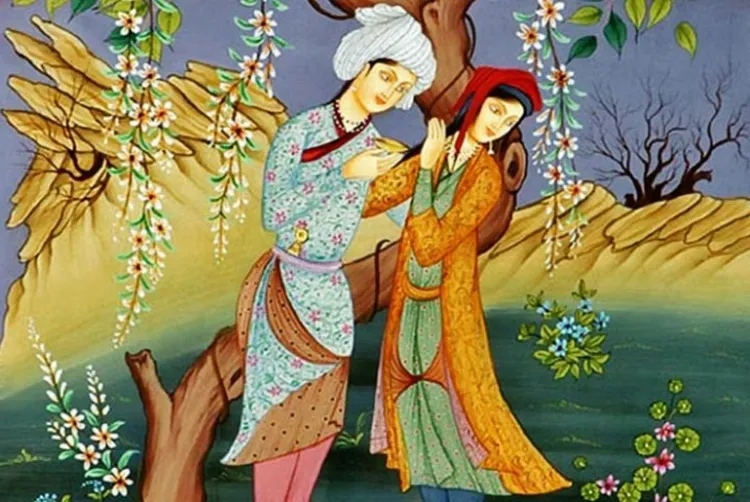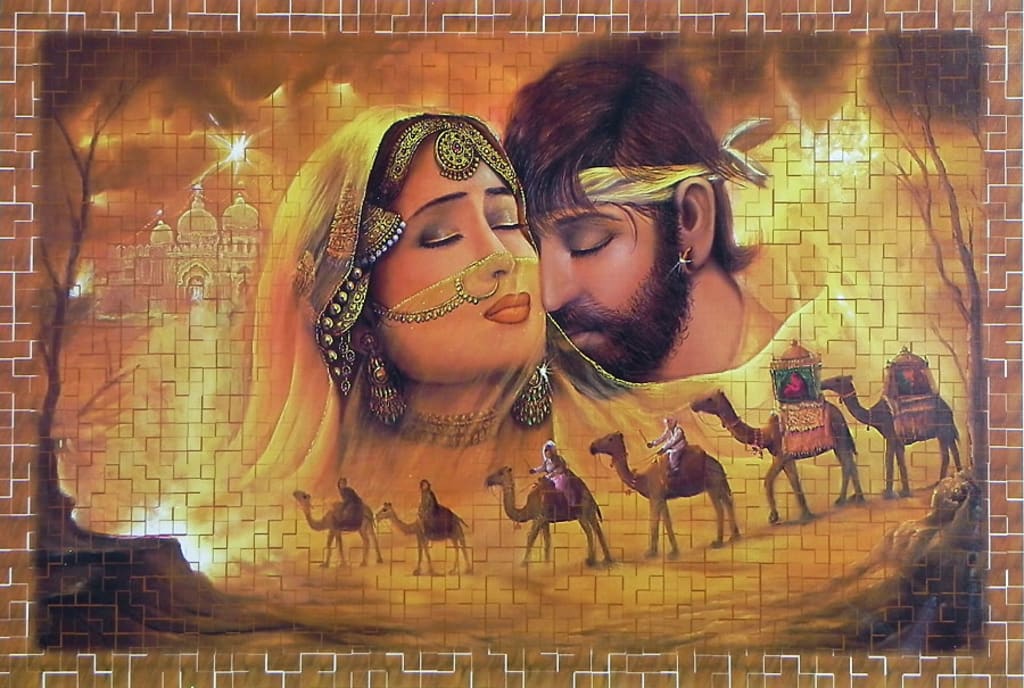The Tale of Laila and Majnu...!!!
The story of Laila and Majnu is an ancient Persian tale that has been told and retold for centuries, with its origins in Arabian literature. It is a narrative of eternal love and heartbreaking tragedy that has inspired poets, writers, and artists across generations.

Early Years
The narrative begins in the Arabian Peninsula, where Qays ibn al-Mulawwah, a young man of noble lineage, falls deeply in love with Laila, the daughter of a wealthy Bedouin chieftain. From the moment Qays and Laila meet, they share an intense and profound connection, their hearts intertwined in a bond that defies all societal norms and conventions.
Qays, consumed by his love for Laila, begins to compose beautiful poetry in her honor, earning him the nickname "Majnu," meaning "madman" in Arabic. His verses articulate his undying devotion and the agony of separation from his beloved.
Opposition and Separation
Despite their mutual affection, the love between Qays and Laila encounters strong opposition from their families. Laila's father, concerned about the impact of their relationship on the family's honor and reputation, forbids her from seeing Majnu. He refuses to consent to their union and arranges for Laila to marry another man, a wealthy and influential merchant.
Heartbroken and devastated, Majnu wanders the desert, reciting his poems to the wind and the stars. He becomes a figure of pity and admiration, revered for his unwavering love and his willingness to sacrifice everything for Laila.
The Trials of Love
As Majnu roams the wilderness, his love for Laila only grows stronger. He becomes a symbol of true love and devotion, his story resonating with those who hear it. Laila, too, suffers in her forced marriage, her heart forever longing for Majnu. She finds solace in his poetry, which reaches her ears despite the distance that separates them.
Over time, the legend of Laila and Majnu spreads far and wide, capturing the imagination of poets and storytellers. Their tale is immortalized in the verses of Persian poets like Nizami Ganjavi, who writes the epic poem "Layla and Majnun" in the 12th century. This work becomes a masterpiece of Persian literature, influencing countless adaptations and interpretations across cultures.

The Tragic End
The story of Laila and Majnu is marked by its tragic conclusion. After years of wandering and longing, Majnu learns of Laila's fate. She has fallen gravely ill, her heart broken by the separation from her true love. Desperate to see her one last time, Majnu makes his way to her village, but he arrives too late. Laila has already succumbed to her illness, her spirit shattered by the unfulfilled promise of their love.
Majnu, upon hearing of Laila's death, is overcome with grief. He collapses at her grave, his heart unable to bear the weight of his loss. In some versions of the story, Majnu dies at Laila's tomb, their souls reunited in death, free from the constraints of the mortal world.
Legacy and Influence
The tale of Laila and Majnu has endured through the ages, becoming a symbol of love's purity and the trials it must endure. It has been adapted into countless forms of art, including literature, music, theater, and film. The story's themes of passionate love, societal constraints, and ultimate sacrifice continue to resonate with audiences around the world.
In India, the legend of Laila and Majnu has found a special place in the hearts of people, inspiring numerous adaptations in Hindi, Urdu, and other regional languages. The story has been immortalized in Bollywood films, stage plays, and classical music, further cementing its status as a timeless love story.
In conclusion, the tale of Laila and Majnu is a poignant reminder of the power of love and the lengths to which it can drive individuals. Their story, though tragic, is a testament to the enduring nature of true love, transcending time and cultural boundaries.
What's Your Reaction?
















